Advancing Partnerships That Shape Community Health
Apply now for CCPS funding to support your community-academic collaboration

Building relationships between academic institutions and the surrounding community is pivotal in connecting research with action to meet community needs. The Community-Campus Partnership Support (CCPS) Program is currently accepting applications for the next round of funding to foster collaborations between community organizations and academic researchers. Strong relationships that center trust, communication, shared ownership, and open-mindedness are crucial to successful community-based research.
CCPS provides seed funding to support relationship- and partnership-building activities to generate ideas for collaborative health research and build capacity for community-engaged research at NAU.
Successful applicants will receive funding and guidance to build sustainable collaborations that lay the groundwork to address pressing community health issues. The program is designed to help teams develop strong community-based participatory research (CBPR) practices and prepare for future research opportunities.
Why Apply?
While the program is not designed to aid in research work directly, the intent of this funding opportunity is to help you build relationships, have discussions with collaborators, and eliminate or alleviate financial barriers to involving community members in your research. Through the program, researchers:
- gain financial support to strengthen new or existing community-academic partnerships
- receive training and mentorship in CBPR
- develop projects that center community voices and priorities
- lay the foundation for long-term, impactful research collaborations
CCPS in Action
Partnership Snapshot: Improving Health and Building Wealth through Financial Literacy
For many people in the criminal justice system, health challenges lead to chronic conditions. Further, people with lower financial wealth are more likely to experience recidivism and reincarceration.
Making the connection between financial literacy and public health, CCPS partners Dr. Tristan Nighswander (NAU Economics, Finance, and Accounting), Dr. Ibrahim Berrada (NAU Sociology), and community partner Catherine Williams (Community Resource Liaison with Working Alternatives), have partnered to explore opportunities for improving financial literacy classes for Native American individuals who are exiting the criminal justice system.
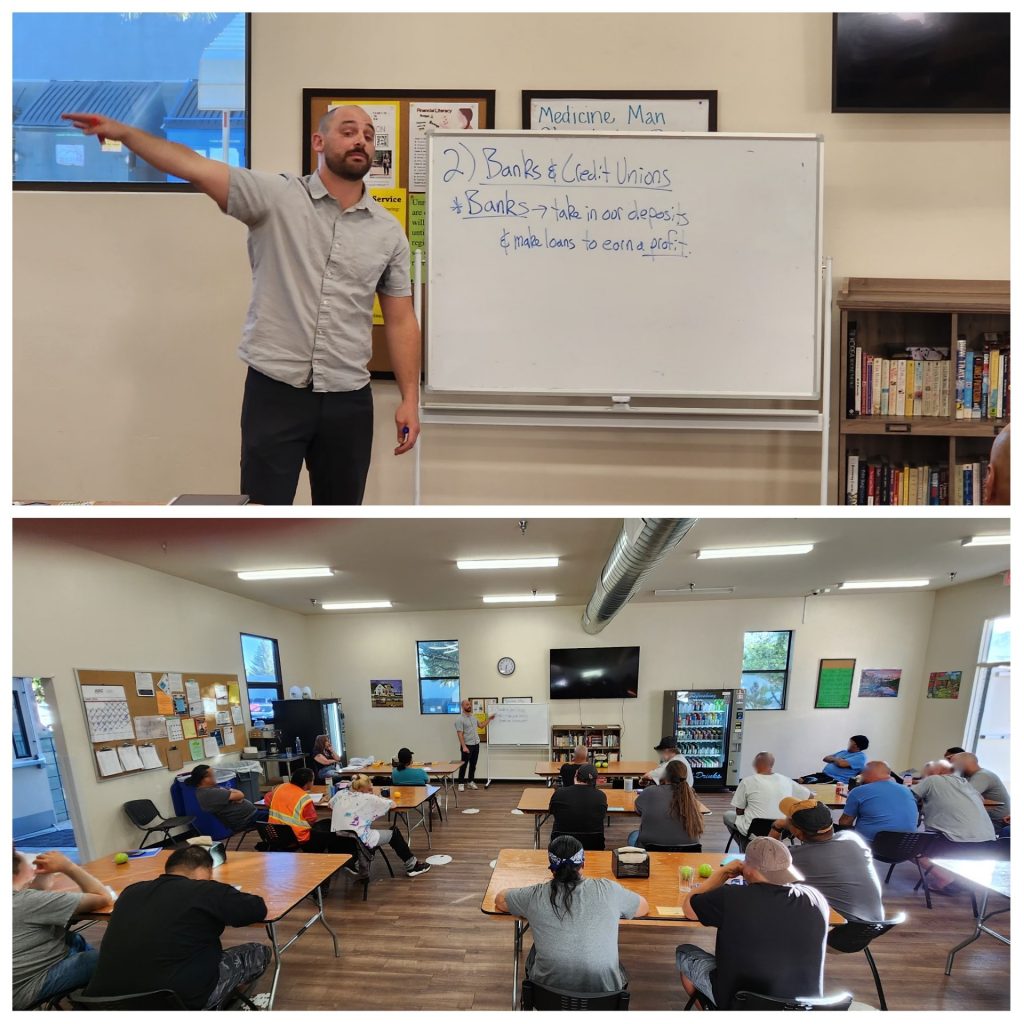
Berrada gave insight on their experience with the program, expressing that CCPS provided an opportunity to develop a “fruitful relationship with our community partner and their residents, a deeper understanding of practical issues related to improving social health and well-being, and actions promoting social change centered around financial empowerment.”
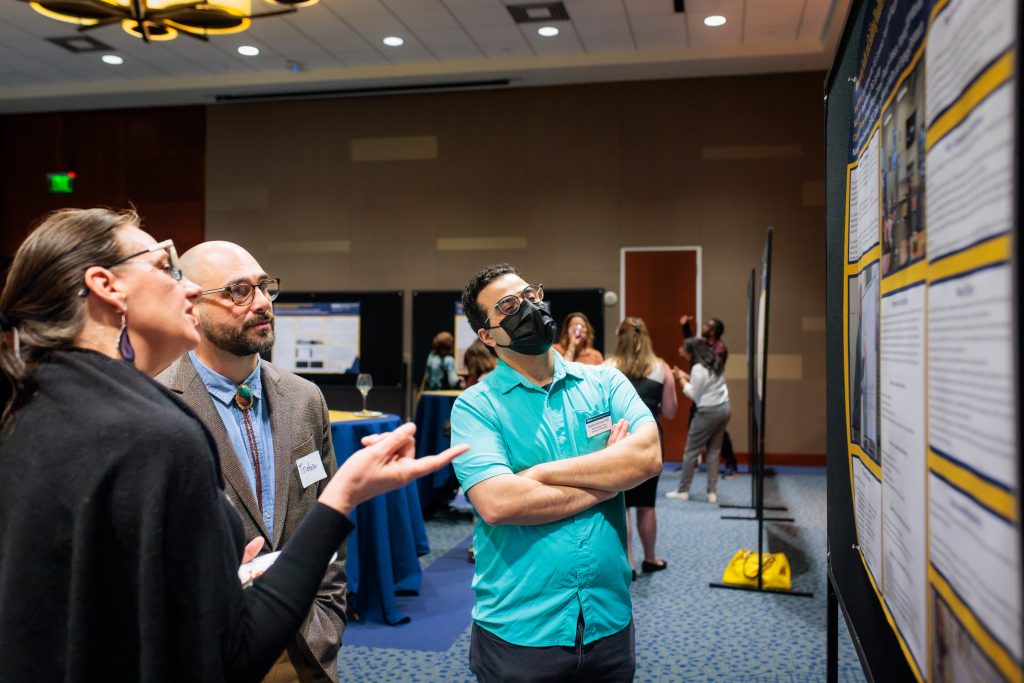
Partnership Snapshot: Joining academia and healthcare in addressing psychosocial oncology support within the Four Sacred Mountains of the Navajo
Sheila Hammer (NAU Social Work) and Tanya “TJ” Riggs (Program Director of Oncology Services at Tuba City Regional Health Care Corporation) are partnering to better understand the psychosocial health needs of American Indian patients who have cancer. Focused on Tuba City, Hammer and Riggs are exploring how to address patients’ unmet needs through support programs.
Commenting on the benefits of partnership between community organizations and academic investigators, Hammer discussed the power of resource and capacity sharing.
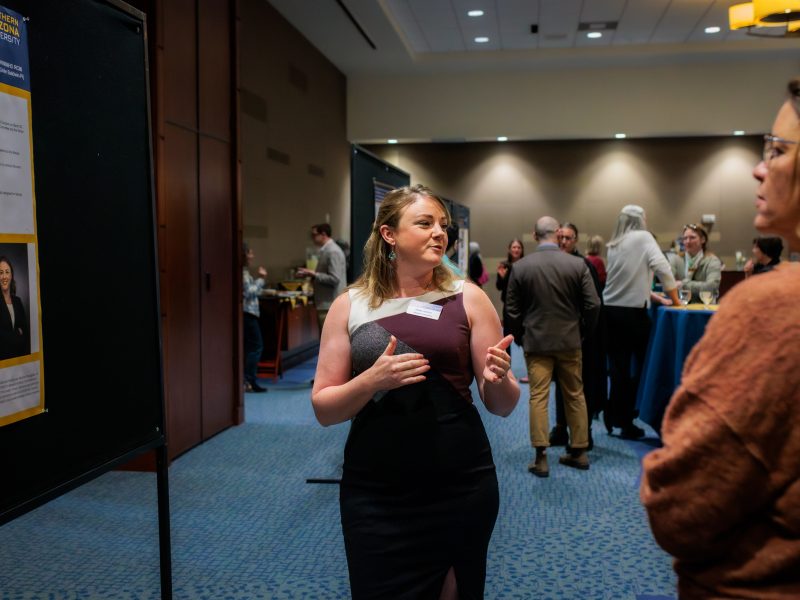
“Academic investigators have a wide range of resources available to them through the academic institution that community partners often don’t have,” noted Hammer.
“For example, the infrastructure to conduct research, whereas community partners are the boots on the ground doing the community work with clients every day. They understand the culture and needs of the community that is so necessary when working in community-engaged research.”
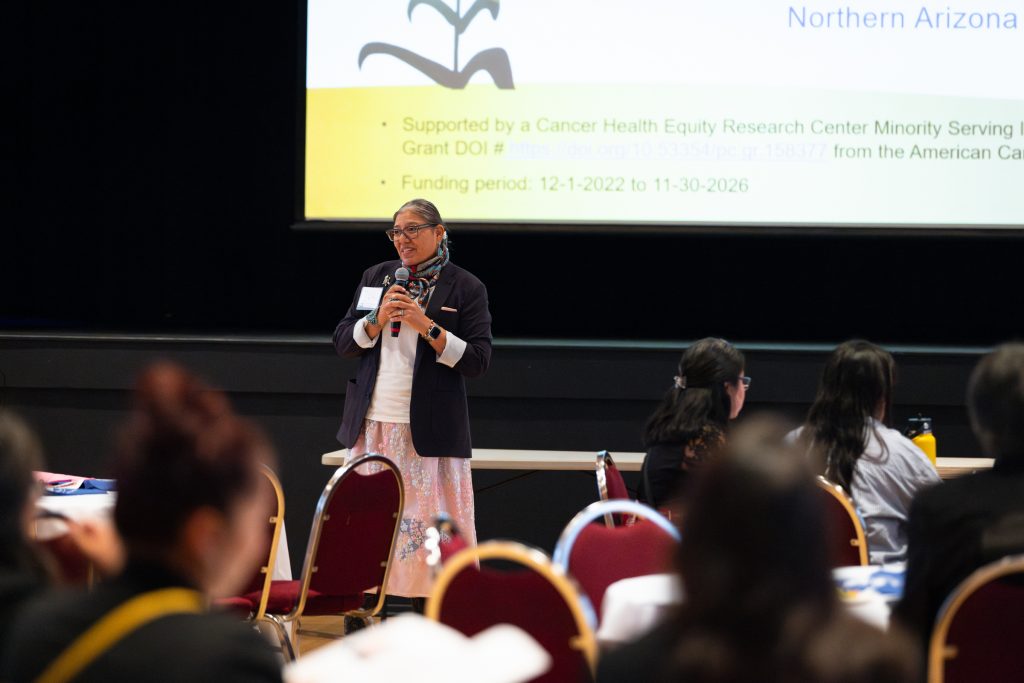
Tangible Changes
Many CCPS partnerships have made tangible differences in the lives of community members. Another participant reflected on the program’s benefits:
“The team members at SHERC have provided incredible guidance, valuable structure, and essential resources to help deepen our community engagement, translate research into actionable outcomes, and develop authentic, community-based relationships that guarantee long-term results.”
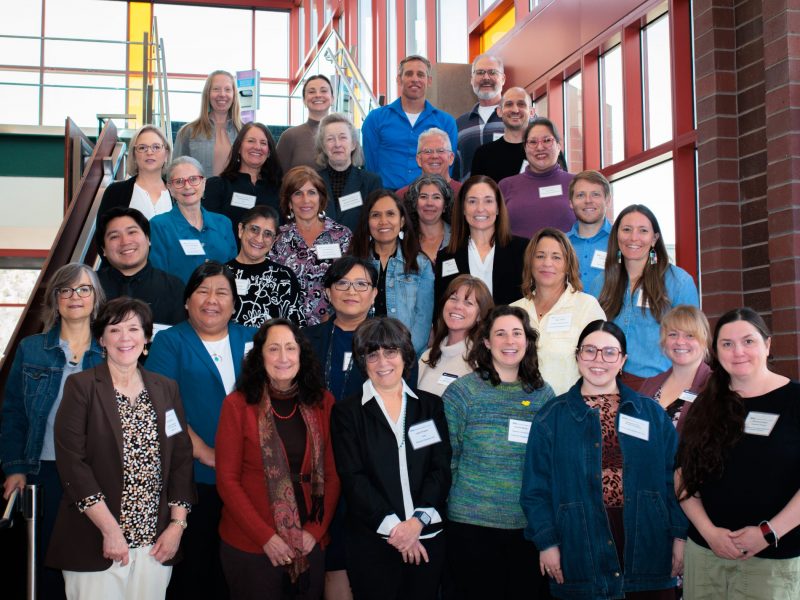
Who Should Apply?
Community organizations and academic researchers who are committed to working together to explore opportunities for partnership and address community health priorities are encouraged to apply. Whether you are building a new partnership or enhancing an existing one, CCPS provides the resources to help your collaboration thrive.
Learn More
The application period for CCPS is open now through Friday, May 30th. If you’re ready to apply, submit your CPPS application today! Or learn more on the CCPS program website.
Looking for tips on applying? Riggs recommends “reviewing previous projects to understand the depth and reach that your project may have. The possibilities to make a positive impact are endless and having a strong partner or team is beneficial,”
Riggs added, “When developing and designing community-based partnerships, it’s important to incorporate key factors, such as the social determinants of health. This helps in identifying and recognizing potential barriers and challenges in developing or completing community-based research projects.”
Strengthen Community-Academic Partnerships – Apply for CCPS Funding!